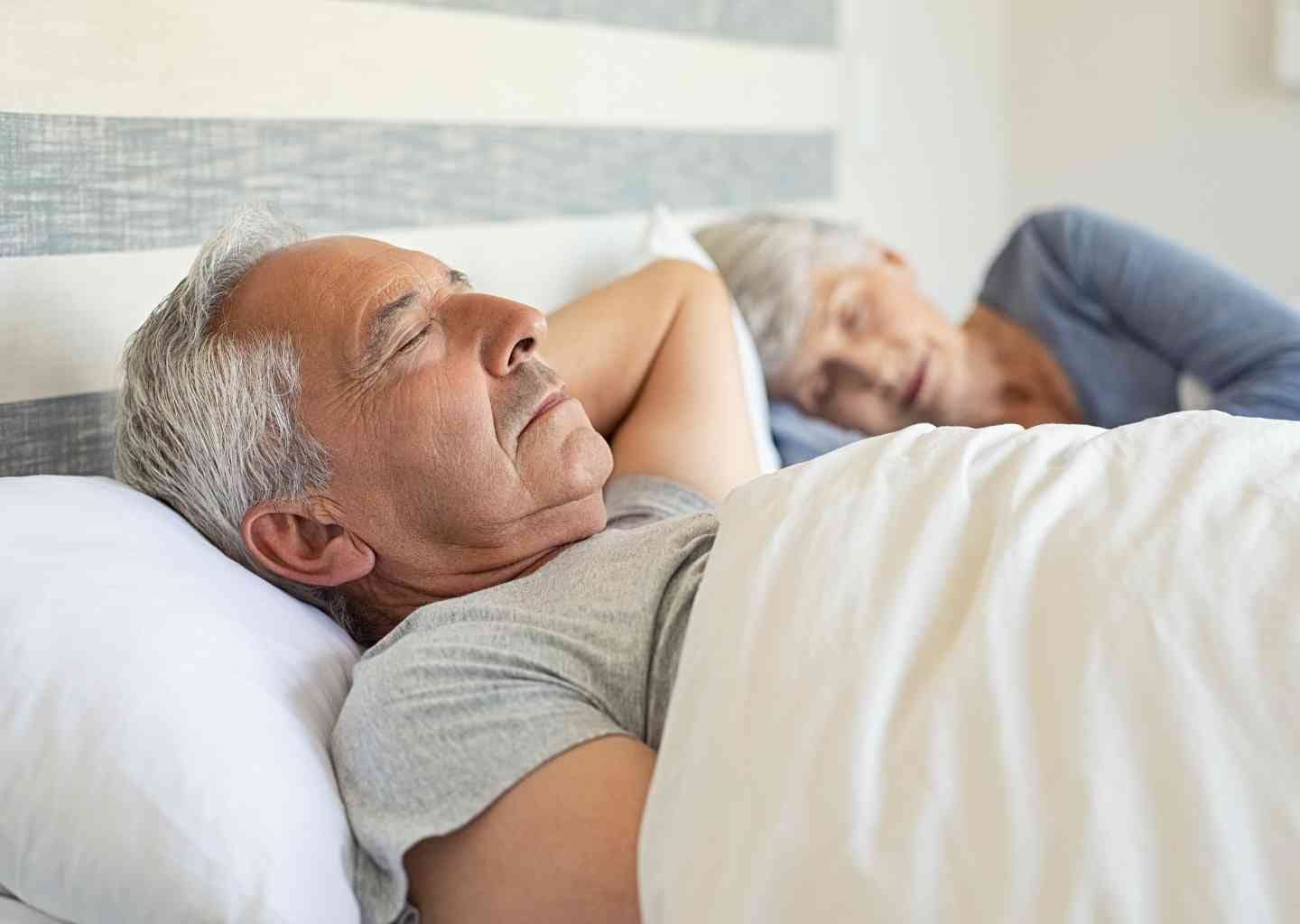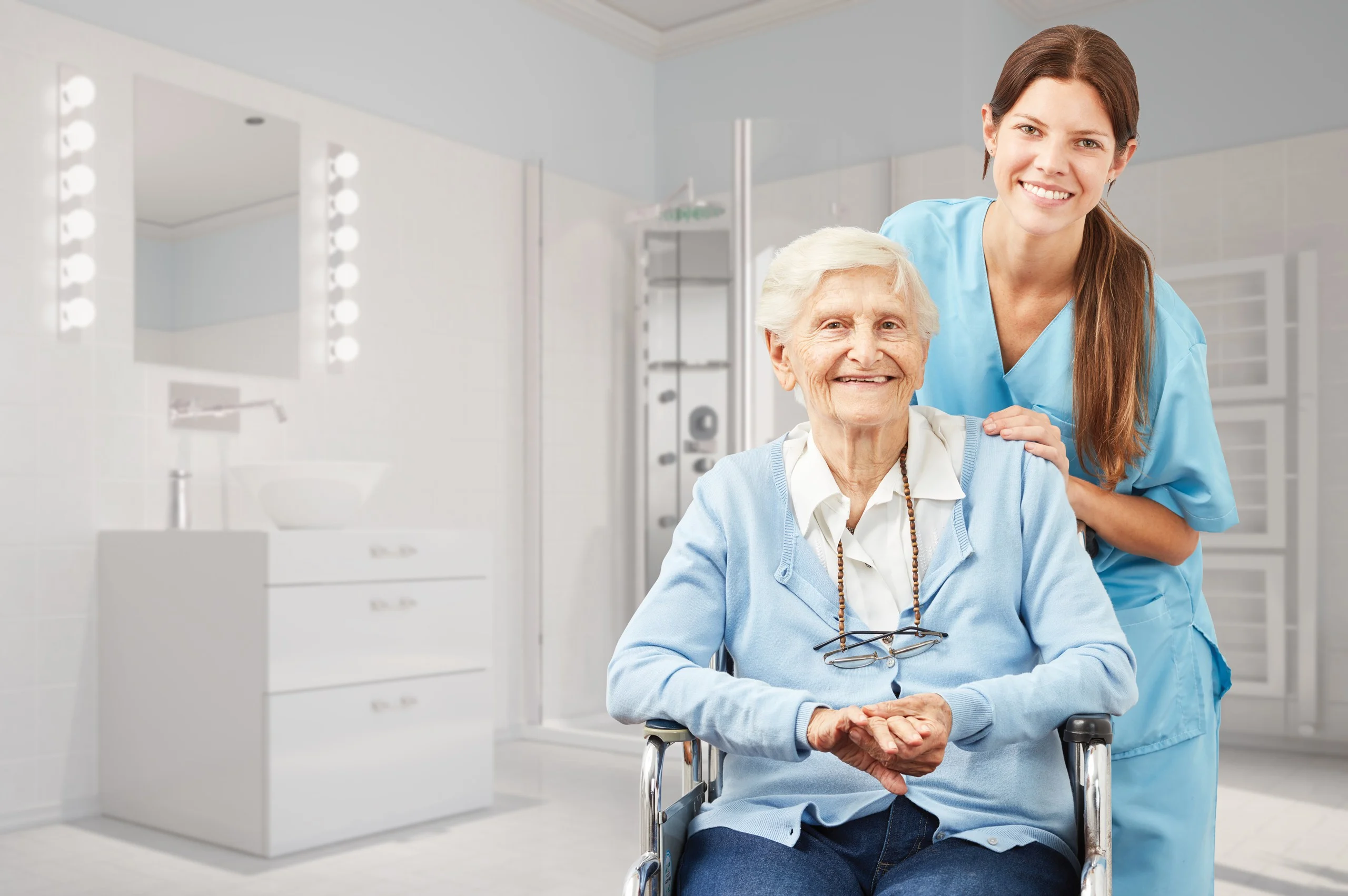The aging process brings about many physiological changes, including changes to sleep patterns. Seniors often become prone to napping throughout the day, go to bed earlier, and sleep longer at night. However, severe disruptions to sleep patterns are not normal and should be addressed as soon as possible.
In this article, we will share several of the most common causes of common sleep disruptions in seniors. We’ll also provide some tips for tackling insomnia, which is a very common sleep disorder.
The Importance of Sleep for Seniors
The body uses the time you spend sleeping to perform many important biological tasks. This includes the removal of waste, healing of cellular damage, strengthening of the immune system, processing of memories, and production of hormones.
These tasks are important for seniors as they ward off chronic illness, improve cognition, and provide energy. Without sufficient sleep, seniors are more at risk of attention and memory problems, depression, nighttime falls, and early cognitive decline. A lack of sleep also increases the risk of serious chronic health conditions like cardiovascular disease, obesity, and diabetes.
The 5 Most Common Causes of Sleep Problems
Here are the 5 most common causes of sleep disruption amongst seniors in the United States.
1. Sleep-Related Breathing Disorders (SRBD)
Sleep-related breathing disorders cover a wide range of conditions which cause a person to breathe abnormally while sleeping. This includes:
-
- Central sleep apnea
This condition causes your body to decrease or stop breathing during sleep. It is usually caused by a problem in the heart or brain. - Obstructive sleep apnea
This form of apnea occurs because of obstructions in the airway. People with this condition are often loud snorers and sometimes make choking noises as they attempt to breathe. - Snoring
Snoring occurs when the tissues in the back of the throat vibrate, emitting loud noises. It can disrupt the sleep of other people in the bed and also cause the snorer to wake.
- Central sleep apnea
SRBDs are very common in seniors. One study found that from 827 participants, aged over 60, 53% showed signs of SRBD and 37% had severe SRBD. Unfortunately, SRBD has been found to contribute to the risk of heart failure, stroke and several other diseases. Talk to your doctor if you believe you have one of these conditions.
2. Medical Conditions
Seniors often suffer from secondary sleep disorders, which are the result of other medical conditions. Dealing with these kinds of sleep disorders is challenging unless you can address the underlying issue. However, medication and therapy can sometimes be effective. Some medical conditions which can cause sleep disruptions include:
-
- Urinary infections
- Conditions affecting the prostate
- Heart failure and chronic obstructive pulmonary disease
- Anxiety and depression
- Neurodegenerative disorders like Parkinson’s disease
- Acid reflux
- Conditions that cause pain during the night, like osteoarthritis
Certain medications also have side effects which disrupt sleep. Talk to your doctor if you believe that your sleep disruptions relate to a specific medical condition or medication.
3. Periodic Limb Movements of Sleep (PLMS)
PLMS causes intermittent movements in the lower limbs while sleeping. While these movements don’t necessarily wake up the person with the condition, they can wake up their partner. PLMS is more common in people who suffer from restless leg syndrome (more on that below) or sleep apnea. Researchers are still trying to understand the causes of PLMS and how to prevent it.
4. Restless Leg Syndrome (RLS)
This condition causes feelings of itching or twitchiness in the legs as you try to fall asleep. The symptoms aren’t painful, but unpleasant enough to make it difficult to sleep. RLS is surprisingly common, with between 5 to 15% of the population meeting its criteria. This condition is a problem because it stops you from getting sleep. Researchers have also found that having RLS is linked to other serious conditions like insomnia and anxiety. Fortunately, RLS usually responds well to medications or supplements.
5. Insomnia
Insomnia is very common amongst seniors, with an estimated prevalence of between 30% to 48% in older adults. It occurs when a person has difficulty initiating sleep or wakes frequently during the night and cannot get back to sleep. Unfortunately, insomnia can have a severe impact on your health. It increases the risk of several conditions including anxiety, fatigue, cognitive decline, and obesity. Insomnia can also impact your daily life, leaving you drained of energy and feeling irritable.
Proven Ways to Treat Insomnia
Insomnia can be a very frustrating condition that damages your quality of life. The good news is, there are many effective treatments, which include:
Exercise
There is some evidence to suggest that exercise can reduce the frequency and severity of insomnia. However, it may take several weeks of exercise to see a difference.
Mindfulness meditation
Mindfulness is the practice of being mentally focused on the present moment. It can be achieved in many ways, including meditation. Mindfulness is effective at calming the mind and making it easier to remove the mental distractions which prevent sleep. The best way to get started with mindfulness is to visit Mindful.org.
Boost your body’s melatonin levels
Melatonin is a natural hormone that regulates the sleep-wake cycle. If you are lacking melatonin, you may find it harder to sleep. Try taking melatonin supplements and avoiding artificial lights, which can suppress melatonin production. Another option is to take Ramelteon, which is a synthetic drug that mimics the effects of serotonin.
Cognitive behavior therapy (CBT)
If you often experience repetitive negative thoughts when trying to go to sleep. CBT may be worth trying. It is a form of therapy that targets negative thought patterns using a range of relaxation and behavioral techniques.
Improve your sleep hygiene
Sleep hygiene refers to any behaviors and environmental factors which relate to how you sleep. Some changes you can make to improve sleep hygiene and reduce the likelihood of insomnia, include:
- Avoiding the use of electronic devices in the evening
- Avoiding large meals just before bed
- Developing a relaxing routine before bed, which includes music, meditation, reading, stretching, deep breathing, and other relaxing activities
- Making sure your bedroom is dark, quiet, and comfortable
- Using earplugs and an eye mask if necessary
- Ensuring your bedroom is only used for sleep
- Maintaining a consistent sleep schedule
- Avoiding stimulating foods which contain large amounts of caffeine, sugar, or alcohol
Medication
Medication should be your last resort for dealing with insomnia because of the side effects that are involved. Commonly used benzodiazepine drugs and sleeping medications can impair brain function in older adults and increase the risk of falls. A safer option may be Trazodone, which is a weak anti-depressant. Many older adults report that it helps them get to your sleep. Talk to your doctor to learn more about the medications that are available.
To learn more about our company and the services we provide, please contact our friendly team at 619-736-4677.







